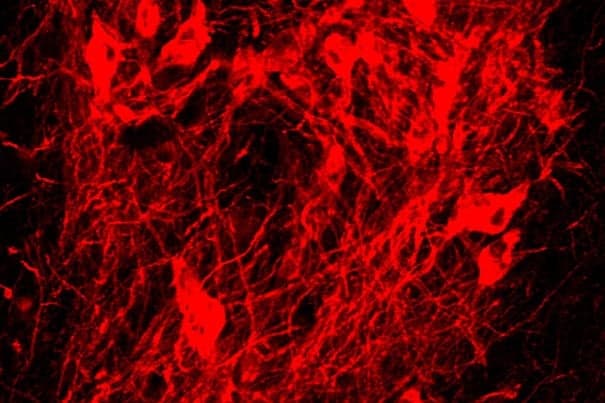Drugs that mimic the action of glucagon-like peptide 1 (GLP-1), and which are being used clinically to treat obesity and Type 2 diabetes, also may have a role in treating drug abuse.
That’s the implication of a study in mice by Aurelio Galli, Ph.D., and colleagues published recently in the journal Translational Psychiatry.
The neurotransmitter dopamine underlies the rewarding properties of drugs like cocaine, which increases extracellular dopamine by blocking the ability of dopamine transporters to regulate levels of the neurotransmitter. Natural chemicals in the brain, notably endocannabinoids and arachidonic acid, can do the same thing.
In the current study, the researchers found that activating the GLP-1 receptor (GLP-1R) reduces arachidonic acid levels in a part of the brain associated with reward. This, in turn, increases expression of the dopamine transporter and lowers dopamine levels.
This is a novel mechanism of GLP-1 action in the brain, they concluded, and suggests that GLP-1R is a potential target for the treatment of drug abuse.
This research was supported in part by grants from the National Institutes of Health (DA035263, DA035588, DC012527, DA021213, MH100096, MH106192, DA036940).



1 year ago, on July 2015, I was diagnosed with Type 2 diabetes and placed on Metformin. So I adopted the ADA diet and saw NO progress getting my blood sugar below 140. Then I looked up the Big Diabetes Lie book: http://healthheuristic.com/7-steps-health-big-diabetes-lie-review/ and it’s been a refreshing change, losing 30 pounds and 4 inches off my waist. Guys, doctors do their best but there’s something to be said for trying natural methods. I’m at a healthy blood sugar level, have more energy than ever, and can even work out twice on the same day when I feel like it. Don’t be afraid to follow your own natural path.